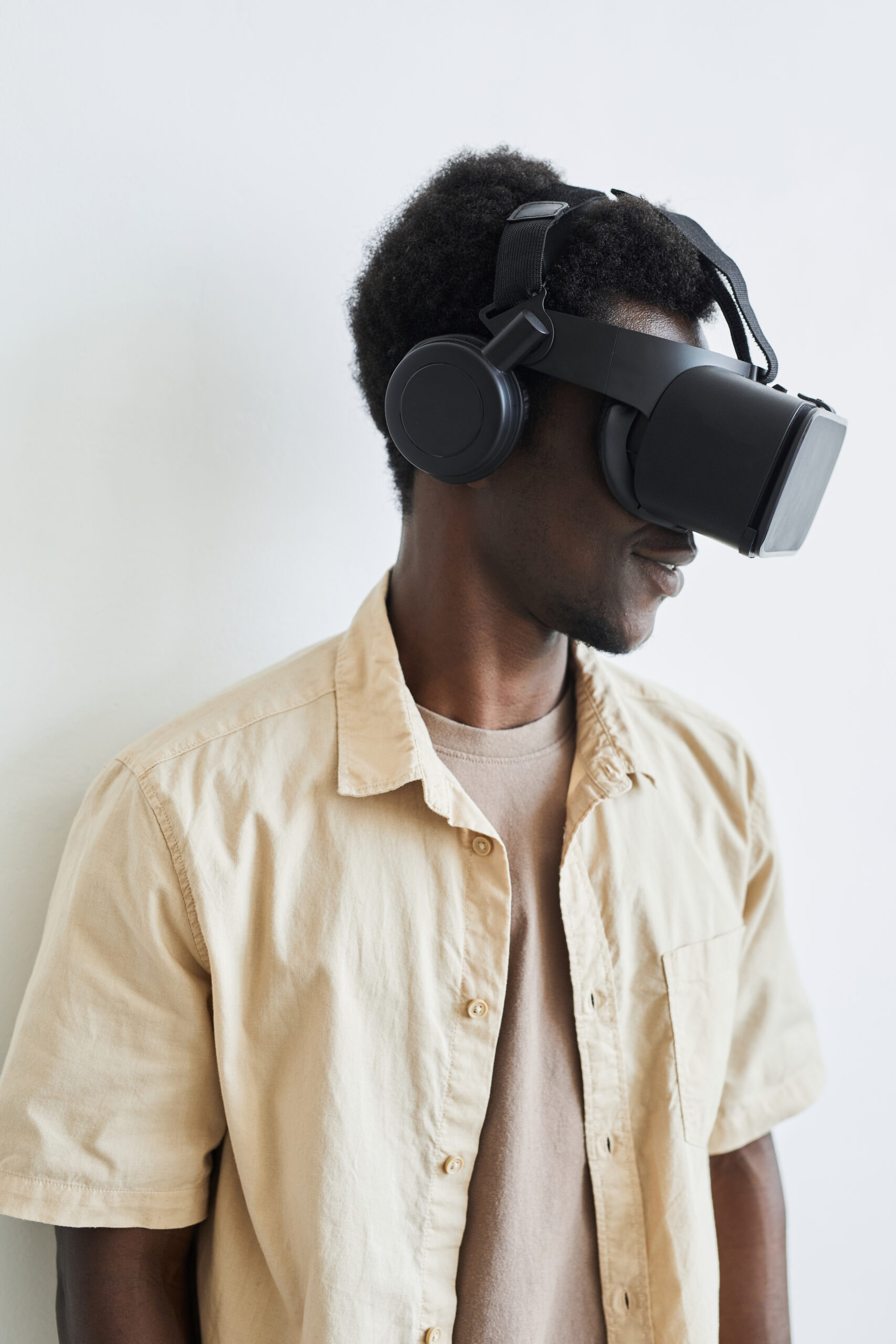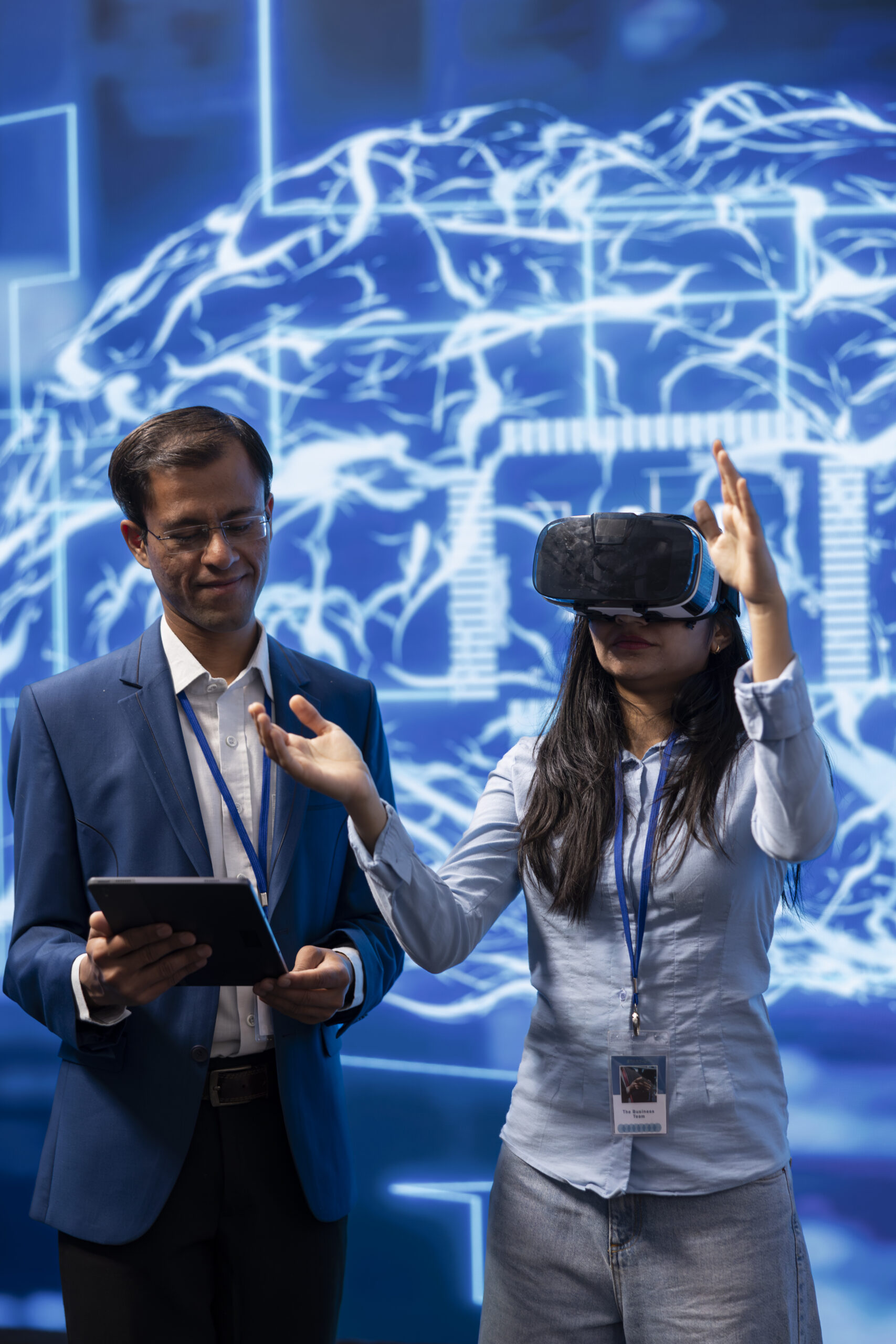Redefining consulting through advanced technologies that drive innovation, elevate customer experiences, and reimagine workforce development.
Reduce learning curves, ensure employees are job-ready faster. Minimize travel costs, particularly for global organizations.
Procure AR solutions to enhance real-time remote support, allowing technicians to overlay digital instructions onto physical objects in real time.
Discovery, procurement and implementation of AI / ML tech, like predictive analytics, chatbots, and business operations including the use of advanced Computer Vision.
XR stands for “extended reality,” which is an umbrella term that encompasses several forms of immersive technologies, including:
Virtual Reality (VR): A fully immersive experience where a user is placed in a computer-generated environment that can simulate a physical presence in the real or imagined world.
Augmented Reality (AR): This overlays digital elements onto the real world, typically through devices like smartphones or AR glasses.
Mixed Reality (MR): A blend of both VR and AR, where virtual and real-world elements interact in real time.
Collectively, these immersive technologies fall under XR, which is widely used in fields like gaming, training, healthcare, design, and education to create more engaging and interactive experiences.



The digital twin is continuously updated with real-time data from its physical counterpart through sensors or IoT (Internet of Things) devices. This allows the virtual model to mirror the current state of the physical entity at all times.
A digital twin can be used to run simulations, test scenarios, and make predictions about how the physical object or system will behave under certain conditions. This is particularly useful for optimizing performance, identifying potential failures, or testing new ideas without affecting the real-world object.
By analyzing the data from the digital twin, companies can anticipate when maintenance is needed or when a part of the system may fail, reducing downtime and saving costs.
The insights gained from the digital twin can help in making real-time decisions to optimize the performance of the physical system. For example, in hospitality, digital twins can be used to optimize production lines or supply chains.
Digital twins can simulate hotel operations, such as room occupancy, energy usage, or guest service efficiency. By modeling and analyzing guest behaviors, digital twins help optimize staffing, improve guest experiences, and enhance operational efficiency across the property. They can also be used to manage hotel and restaurant assets, predict maintenance needs, and ensure seamless operations across multiple locations.
“There’s no doubt XR and AI will transform hospitality. Magicgate is a go-to source for organizations looking to navigate this world, and a big win for the industry at large.”
Michael Cohen Managing Partner, Growth Advisors International Network (GAIN)“We’ve seen XR adoption start to transform industries like aerospace and healthcare. Hospitality is the next horizon, and this consultancy. Magicgate will help accelerate the industry.”
John Cunningham COO of the VR/AR Association
“We’ve tapped Magicgate's expertise to help navigate the training processes into the VR world. We see the potential of positive ROI - and it will be an absolute game-changer.”
Cam Crowder Former Franchise Owner, Tim Hortons